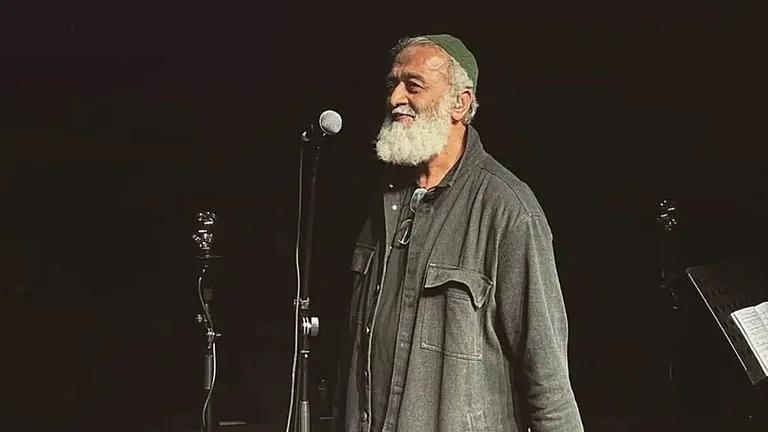The youngest member of that family, Kirin Narayan, is now a professor of anthropology at the University of Wisconsin. In this memoir, she recreates a bicultural and turbulent adolescence in that quirky household. The book is also an acutely observed portrait of a very cosmopolitan Bombay, before it became Mumbai and the thugs took over the city.
The cottage and the coconut grove are no longer there. We now have ugly highrises. The only thing that reminds you today of the Juhu of that time is Prithvi Theatre where the cottage of Prithviraj Kapoor, Papaji, once stood. The unassuming thespian would sit on the steps that led to the beach and talk to all and sundry. Meena Kumari also had a place in the compound. Many young men spent the night there.
The Queen of Janki Kutir, however, happened to be an American woman of generous proportions who was heavily into gurus and ashrams. Didi Kinzinger, the author’s mother, met Narayan Contractor while they were students in Boulder, Colorado. When they decided to get married, he sent home photos of her in a sari hoping to pacify his parents who were looking forward to a Gujarati bride. Didi’s mother also disapproved of the marriage. She turned up in Bombay to take her daughter back to America. No such luck. Didi is still very much with us. She lives in Kangra Valley where the Himalayan foothills remind her of her childhood in New Mexico.
Forty or so years ago, her address was passed along the hashish trail that began in Europe and ended in India via Iran and Afghanistan. Beatniks and hippies on their way to Goa, Kathmandu or Ganeshpuri would land at the cottage. These unwashed young Westerners, with newly acquired names like Bhagwandas or Saraswati, would camp out there for weeks. Women with untidy hair wore cholis and crumpled petticoats minus saris and bras. Didi taught them to eat with the right hand, not to extend their feet towards people or gods.
She also ran a salon. On weekends, her parties swelled with visitors from downtown Bombay. Artists, newspaper editors, documentary filmmakers and musicians sat on divans in the living room or on cane moodas under the pipal tree in the garden. It was wise to bring a bottle since booze was always in short supply. Stories of all kinds and on all subjects swirled around us. Little did we realise that the skinny little girl in the corner, the author of this book, was only pretending to do her homework. She was listening to our every word.
Mulk Raj Anand played Scrabble with the children. Pt Ram Narayan played the sarangi and the firangis would roll their joints and their heads to his music. I met the young Sharmila Tagore at one of Didi’s soirees. Unfortunately, for me, she was already engaged to be married to the Nawab and showed least bit of interest in me. The local crowd attempted to make conversation with the hippies but it never worked. They were interested in discussing enlightenment; we were more interested in Vietnam.
There were undercurrents in the family. We learn now that the parents took no pleasure in each other’s company. There was constant worry about money. The father self-destructed as an alcoholic. He spent precious money on foreign liquor and bootlegged copies of Playboy. With the mother into mysticism, the children often had to fend for themselves. Finally, they escaped and sought careers in America. Most tragic of all, Rahoul, the brother the author adored, died there of AIDS at a young age.
Kirin is a gifted writer. This is a witty, often poignant and an altogether delightful book. Her mother was right when she told her: "When you grow up you’re going to be very grateful to have had such an interesting childhood."






















